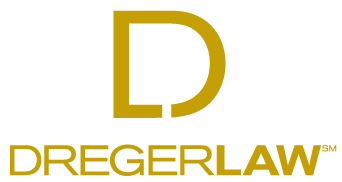It’s not easy to be a small business owner. There are many pitfalls that you often can’t see until it’s too late. The good news is you don’t have to fall victim to these difficulties. If you’re proactive in preventing some of the most common problems, your business could easily sidestep potential disasters.
Over the years, I’ve seen plenty of visionaries form small businesses without considering protective measures. They select a business entity without understanding that their choice affects: (1) their exposure ( or non-exposure) to claims of third parties; (2) their ability (or lack of ability) to control the management of their company; and (3) the operational costs and tax amount that their company will pay.
In this blog, I will discuss the perils of choosing the wrong business entity and the benefits of making an informed selection, so your company can thrive without risk. The bottom line is that while there are a number of business entities from which you can choose, it is important for you to be aware of the distinct advantages and disadvantages of each entity. For most businesses, the entity choice will be a corporation.
Choosing Your Business Entity
But, before I get ahead of myself, let me first explain the different business entities. They include:
- Limited Liability Company (LLC)
- Sole Proprietor
- Partnership
- Corporation
LLC
The LLC is a popular choice that is often recommended by accountants. It is essentially a blend of a corporation and a partnership. Its benefits are that it provides the liability protection (i.e. “corporate shield”) of a corporation and the tax benefits of a partnership. But its disadvantages are significant and outweigh the benefits.
To start, LLCs have only been in existence for about 40 years, which means that there is a limited amount of case law to which a court can refer when dealing with LLC disputes with third parties or among its own member-owners. This means that determining how a court will enforce the rights of the LLC and its members is unpredictable. Secondly, LLCs are expensive to create (the legal cost to create proper organizational and management documents can exceed $2,000, plus a $750 filing fee) and costly to maintain ($300/year). In short, LLCs should be avoided unless you have complex tax issues that your accountant can demonstrate are best served by using an LLC.
Sole Proprietor/Partnership
Given the pros and cons of the LLC entity, you might think the sole proprietor or partnership options fare better. They do not, as these entities have imbedded problems as well. For example, neither a sole proprietorship or a partnership provides protection against third party claimants or creditors. Moreover, the 50/50 structure means that each partner has 100% veto power. This means that neither party has the right to make a unilateral decision, even if it’s in the best interest of the business. Thus, neither the sole proprietorship or the partnership should be considered a safe or practical choice for your business entity.
Corporation
This leaves us with the final business entity: the corporation. In Illinois, corporations have existed for over 145 years, thereby providing a wealth of case law on which courts may rely when enforcing the rights of the corporation and its shareholders, director, officers and employees. This provides predictability in evaluating the rights and liabilities of the corporation and its owners and eliminates the gray areas otherwise experienced with LLCs.
Secondly, corporations are relatively inexpensive to form (i.e. $400 legal fee to create corporate book, minutes and resolutions plus a $275 filing fee), and very affordable to maintain ($100 annual filing fee).
By mindfully choosing your business entity, you’ll be looking out for the long-term health of your company. Then, when you move forward, you can do so with confidence and peace of mind.
Next week, I will discuss the mechanics of “moving forward.”
Need More Help?
For over 20 years, our experienced attorneys at DregerLaw have assisted hundreds of business owners throughout Chicago and Northern Illinois. We can help you as well. Call us at 312-322-0955. Or follow this link* so that we can guide you on your legal rights as a small business owner.
* The use of the information on this form for communication with the firm or any individual member of the firm does not establish an attorney-client relationship.

